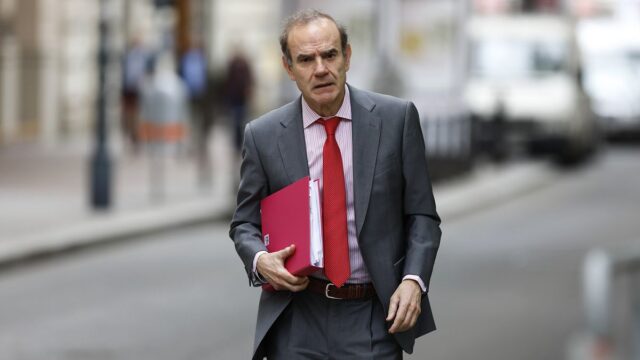Enrique Mora, deputy secretary general of the European External Action Service (EEAS), attended the inauguration ceremony of the new president of Iran.
The European Comission was ratified this Thursday in his decision to send a senior diplomat to the inauguration of the new president of Irandespite the negative reaction it aroused among members of the European Parliament.
Enrique Mora, Deputy Secretary General of the European External Action Service (EEAS) and Chief of Staff of the EU High Representative for Foreign Policy, Joseph BorrellI travel to Tehran to attend on behalf of the bloc of 27 at the investiture ceremony of Masoud Pezeshkian, new president of Iran.
The member states chose to send their representatives already based in Tehran to the ceremony, instead of sending their foreign ministers. The presence of the Spanish did not take long to provoke reactions againstand several MEPs called it a flagrant contradiction with the bloc’s fundamental values.
Iran has been repeatedly accused of supporting the Russian invasion of Ukrainelead a brutal repression of human rightsholding EU citizens captive for political purposes, financing terrorist movements around the world and carrying out a nuclear program in a clear challenge to United Nations resolutions.
“Incredible“Bart Groothuis, a Dutch legislator from the liberal group Renew Europe, said on the social network X. “European countries did not attend President Putin’s inauguration; apparently Iran is different. “I don’t understand this logic.”
Latvian Rihards Kols, of the far-right group European Conservatives and Reformists (ECR), accused Mora of doing “damage to the legitimize a regime that brutalizes its own people, sponsors terrorism around the world and sows discord.” Kols shared a video of the inauguration in which Iranian deputies were seen chanting “Death to America and Israel!” and added: “This is a shame“.
Hannah Neumann, a Green MEP and staunch critic of the Iranian regime, said Mora “should know when to accept an invitation to a ceremony, and when not to,” and reprimanded the diplomat for participating in a “family photo” in which he appeared, among others, Ismail Haniyehpolitical leader of Hamas, which the EU includes on its list of terrorist organizations, and who was killed in an airstrike hours after attending the ceremony.
The European External Action Service (EEAS) maintains that Mora’s assistance respects the official line of the EU
Despite the controversy, for the EEAS Mora’s attendance did not pose any problem because he was in line with the bloc’s official policy of “critical engagement”which combines, on the one hand, open communication channels and, on the other, the imposition of sanctions when necessary.
Mora was present at the inauguration of the now deceased president Ebrahim Raisi in 2021, also in the midst of the controversy. “This was the basis for (Enrique Mora) to be in Tehran for the inauguration and to use his interaction with officials of the incoming Iranian Administration in Tehran to convey the EU’s positions on all the issues of concern we have related to Iran,” EEAS spokesman Peter Stano said on Thursday.
“Our relations with Iran are in a very very low level for different reasons: for the violation of the human rights of the population in Iran, for Iran’s support for Russia’s illegal aggression against Ukraine, for the arbitrary detentions of EU citizens,” Stano continued.
“So these are all issues we are actively addressing with them. These are the messages we transmit to you. “These are the issues we are trying to resolve with them.”
Other issues included Tehran’s continued support for Hamas, Hezbollah and the Houthiswhich have used weapons supplied by Iran to attack Western ships in the Red Sea.
The spokesperson noted that the EU had long acted as “facilitator” of the Joint Comprehensive Plan of Action (JCPOA), the multilateral agreement to limit the development of the Iranian nuclear program. The agreement is highly appreciated in Brussels, as it is considered a example of the bloc’s diplomatic skillbut it is located in a dying state since US withdrawal in 2018.
Efforts to reactivate the nuclear deal with Iran have taken place in recent years, without great progress. Enrique Mora has been the EU’s interlocutor in the talks.
After his visit to Tehran, Mora shared a Photo on social networks with Abbas Araghchi, an Iranian diplomat who had already participated in the nuclear deal and who, it is said, could be the country’s next foreign minister. “I am glad to regain contact with (Abbas Araghchi) in a new chapter for Iran,” wrote in X Mora. “Looking forward to working with him again.”






